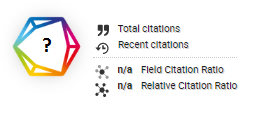Tax Avoidance Of Mining Industry Registered On Indonesia Stock Excgange Period 2020-2023
DOI:
https://doi.org/10.46984/sebatik.v29i1.2577Keywords:
Tax Avoidance, Transfer Pricing, Profitability, Debt CovenantAbstract
Tax revenue is one of the most significant sources of government income which will then be used in development aimed at the prosperity of the people. However, in practice, not all taxpayers (WP) are willing to pay taxes to the state. Various strategies can be carried out by WP in order to pay as little tax as possible which then carry out tax avoidance either legally or illegally. This study aims to obtain evidence regarding the effect of transfer pricing, profitability, and debt covenants on tax avoidance. The data in this study use secondary data in the form of financial reports through data collection obtained from the mining industry on the Indonesia Stock Exchange in 2020-2023. This study is a type of quantitative research that analyzes data to test hypotheses. The sample used consisted of 58 companies, with data processing using the SPSS version 23.0 program. The sampling technique used was purposive sampling, while data analysis was carried out through multiple linear regression. The results of the study showed that profitability had a negative and significant effect on tax avoidance, while transfer pricing and debt covenants did not have a significant effect on tax avoidance.
References
Devi, Y., Saefurrohman, G. U., Rosilawati, W., Utamie, Z. R., & Nurhayati, N. (2022). Analisis Penyebab Penghindaran Pajak (Tax Avoidance) Dalam Laporan Keuangan Pada Perusahaan Yang Terdaftar di BEI Tahun 2016-2019. Jurnal Akuntansi Dan Pajak, 22(2), 622. https://doi.org/10.29040/jap.v22i2.3920
Imam Ghozali. (2018). Aplikasi Analisis Multivariate dengan Program IBM SPSS 25 edisi ke-9. Universitas Diponegoro.
Jingga, V., & Lina, L. (2017). Factors Influencing Tax Avoidance Activity: An Empirical Study from Indonesia Stock Exchange. Indian-Pacific Journal of Accounting and Finance, 1(1), 17–25. https://doi.org/10.52962/ipjaf.2017.1.1.3
Moeljono, M. (2020). Faktor-Faktor yang Mempengaruhi Penghindaran Pajak. Jurnal Penelitan Ekonomi Dan Bisnis, 5(1), 103–121. https://doi.org/10.33633/jpeb.v5i1.2645
Nasirudin, I. M., & Trisnawati, R. (2023). Faktor-Faktor Yang Mempengaruhi Tax Avoidance Pada Perusahaan Property Dan Real Estate. Jurnal Akuntansi Dan Keuangan, 8(1), 54–68. https://doi.org/10.33373/mja.v14i2.2868
Novriyanti, I., & Dalam, W. W. W. (2020). Faktor - Faktor Yang Mempengaruhi Penghindaran Pajak. JJournal of Applied Accounting and Taxation, 5(1), 24–35. https://doi.org/10.53916/jam.v35i1.127
Panjalusman, P. A., Nugraha, E., & Setiawan, A. (2018). Pengaruh Transfer Pricing Terhadap Penghindaran Pajak. Jurnal Pendidikan Akuntansi & Keuangan, 6(2), 105. https://doi.org/10.17509/jpak.v6i2.15916
Ramdiani, E. N., Gunarsih, T., & Lestari, E. P. (2023). Analisis Faktor-Faktor yang Mempengaruhi Tax Avoidance. Owner: Riset & Jurnal Akuntansi, 7(2). https://doi.org/https://doi.org/10.33395/owner.v7i2.1367 Analisis
Suciarti, C., Suryani, E., & Kurnia, K. (2020). The Effect of Leverage, Capital Intensity and Deferred Tax Expense on Tax Avoidance. Journal of Accounting Auditing and Business, 3(2), 76–83. https://doi.org/10.24198/jaab.v3i2.28624
Syalendra T.P., & Martini. (2024). Pengaruh Mekanisme Bonus, Debt Covenant, dan Profitabilitas terhadap Transfer Pricing. Anggaran : Jurnal Publikasi Ekonomi Dan Akuntansi, 2(3), 409–436. https://doi.org/10.61132/anggaran.v2i3.821
Tarmidi, D., Sari, P. N., & Handayani, R. (2020). Tax Avoidance: Impact of Financial and Non-Financial Factors. International Journal of Academic Research in Accounting, Finance and Management Sciences, 10(2), 1–8. https://doi.org/10.6007/ijarafms/v10-i2/7238
Widyasari, T. E. (2019). Faktor-Faktor Yang Mempengaruhi Penghindaran Pajak Perusahaan Properti Dan Real Estate. Jurnal Paradigma Akuntansi, 1(3), 937. https://doi.org/10.24912/jpa.v1i3.5598
Widyastuti, S. M., Metutia, I., & Candrakirana, A. B. (2022). The Impact of Leverage, Profitability, Capital Intensity and Corporate Governance on Tax Avoidance. Integrated Journal of Business and Economics, 5(3), 13–27. http://download.garuda.kemdikbud.go.id/article.php?article=2616400&val=10825&title=THE EFFECT OF LEVERAGE PROFITABILITY CAPITAL INTENSITY AND CORPORATE GOVERNANCE ON TAX AVOIDANCE
Yohana, B., Darmastuti, D., & Widyastuti, S. (2022). Penghindaran Pajak Di Indonesia: Pengaruh Transfer Pricing dan Customer Concentration Dimoderasi Oleh Peran Komisaris Independen. Reviu Akuntansi Dan Bisnis Indonesia, 6(1), 112–129. https://doi.org/10.18196/rabin.v6i1.13468
Yuniarwati, I Cenik Ardana, Sofia Prima Dewi, & Caroline Lin. (2017). Factors That Influence Tax Avoidance in Indonesia Stock Exchange. Chinese Business Review, 16(10), 510–517. https://doi.org/10.17265/1537-1506/2017.10.005
Zikrullah, M., & Martini, M. (2019). Characteristics of The Company and Tax Avoidance Manufacturing Company in Food and Beverage Industry Sector Listed in Indonesia Stock Exchange Period 2012-2016. https://doi.org/10.4108/eai.20-1-2018.2281875
Downloads
Published
How to Cite
Issue
Section
License
Copyright (c) 2025 Martini, Rismawandi

This work is licensed under a Creative Commons Attribution 4.0 International License.
Authors retain all their rights to the published works, such as (but not limited to) the following rights; Copyright and other proprietary rights relating to the article, such as patent rights, The right to use the substance of the article in own future works, including lectures and books, The right to reproduce the article for own purposes, The right to self-archive the article








